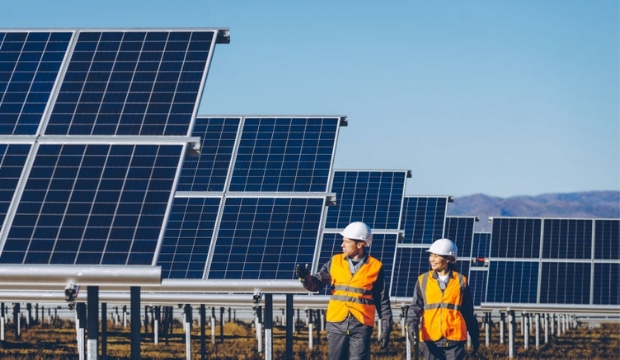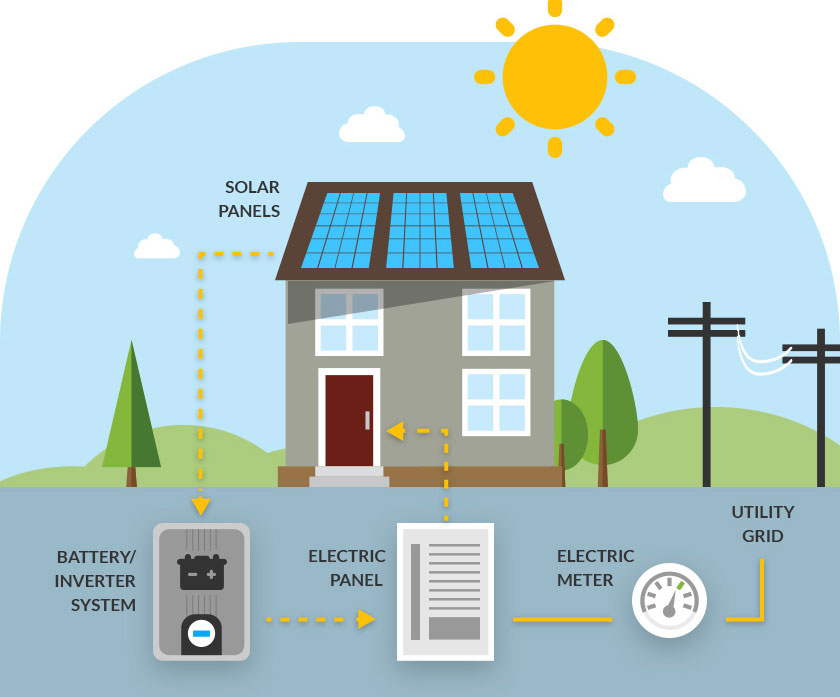Solar Panel Systems Virginia: Lumina Solar Focuses On Offering Advanced Photovoltaic Solutions For Homes And Companies
History and Establishing
Have you ever questioned how a photovoltaic panel business springs from a mere spark of inspiration into a powerhouse of eco-friendly energy? It frequently starts with a vision-- one fueled by a blend of development, determination, and a pinch of serendipity. The journey of many solar business mirrors the advancement of the technology itself: from bulky, ineffective panels to streamlined, high-efficiency marvels utilizing the sun's bounty.
The Early Days
In the late 20th century, when solar energy was still a specific niche concept, pioneers planted seeds for what would become a worldwide motion. Envision a little workshop filled with curious engineers, relentlessly exploring with photovoltaic cells. Their enthusiasm was palpable, typically driven by a desire to combat environment change and decrease reliance on fossil fuels.
One such anecdote is about a founder who, inspired by a camping journey, understood that even in remote locations, the sun could power important devices. This simple observation sparked a company's mission to equalize access to clean energy.
Establishing Concepts

- Innovation: Constantly pressing the borders of solar technology to improve effectiveness and durability.
- Sustainability: Committing to environment-friendly manufacturing and lowering carbon footprints.
- Accessibility: Making renewable energy options budget friendly and useful for everyday users.
Milestones in Development
| Year | Key Event |
|---|---|
| 1985 | Business founded in a little garage, concentrating on research and advancement. |
| 1995 | Commercial solar panel item released, acquiring local attention. |
| 2005 | Expanded to worldwide markets, welcoming worldwide eco-friendly energy objectives. |
| 2015 | Introduced advanced solar panel technology with boosted energy conversion. |
Isn't it fascinating how these incremental actions, often neglected, form the energy landscape today? The solar panel company story is not practically innovation; it's about an unrelenting quest for a brighter, cleaner future.

Developments in Photovoltaic Panel Technologies
Ever seen how some solar panels shine brighter and last longer? It's not magic; it's the science of photovoltaic efficiency. Modern photovoltaic panel companies invest heavily in technologies like bifacial cells, which capture sunlight from both sides, improving energy harvest without broadening roofing system space. Have you ever questioned why some panels carry out better on cloudy days? That's due to advances in thin-film solar technology, which prospers under diffused light conditions.
Item Variations Customized to Special Needs
One size never fits all. Solar panel companies now provide:
- Monocrystalline panels for optimum performance and smooth aesthetics, ideal for space-constrained rooftops.
- Polycrystalline panels, which provide an affordable option without sacrificing excessive output.
- Building-integrated photovoltaics (BIPV), merging solar tech perfectly into architectural components like windows and exteriors.
Selecting the best product isn't simply about in advance expense; it has to do with matching your environment, energy goals, and long-lasting savings. Homes shaded by trees need panels that excel in low-light circumstances, something lots of neglect until energy bills climb up suddenly.
Technical Tips for Optimum Choice
- Assess the temperature level coefficient-- lower values mean panels lose less efficiency on hot days.
- Search for panels with enhanced anti-reflective finishings to take full advantage of light absorption.
- Consider the panel's guarantee not simply for defects, however for ensured power output over decades.
- Do not underestimate the significance of the inverter innovation combined with the panels; it can make or break your system's performance.
Beyond Panels: Emerging Trends
Think of solar panels that change their angle immediately to go after the sun-- tracking systems are ending up being more available, increasing yield significantly. Or solar tiles that blend invisibly into your roofline, changing your home into a silent, self-dependent power generator. These developments are reshaping what a solar panel business uses-- not simply products, however incorporated energy options.
Market Presence and Global Operations
Ever wonder why some photovoltaic panel business here appear to sprout up in every corner of the world while others barely make a ripple? The difference lies not just in innovation but in mastering the art of navigating varied markets. Broadening internationally is like planting seeds in different climates-- you should understand each environment's special conditions to flourish.
Take, for circumstances, the detailed dance of logistics and supply chain management. Delivering panels halfway throughout the world isn't practically range; it has to do with timing, customs, tariffs, and adjusting to local need fluctuations. A company with robust global operations anticipates these variables, making sure panels show up on schedule without inflating costs. This insight is no little accomplishment and frequently separates market leaders from fans.
Secret Techniques for Expanding Market Existence
- Localized manufacturing: Establishing production hubs near target audience minimizes shipping hold-ups and import intricacies.
- Strategic partnerships: Working together with local companies speeds up market penetration and builds trust.
- Adaptive product design: Customizing photovoltaic panel tech to weather, sun intensity, and facilities nuances improves performance and approval.
What about the human aspect? Solar panel companies running internationally should fix up cultural differences and regulatory subtleties without forgeting their core mission. For example, what operate in a sun-drenched desert might falter in a damp seaside region. Often, the most innovative solution is merely listening-- taking in regional insights to fine-tune innovation and approach.
Specialists typically encourage a phased rollout instead of a shotgun growth. Why run the risk of overextension when measured growth builds sustainable momentum? Scaling carefully indicates balancing aspiration with operational resilience - Solar Panel Company Virginia. In the race for sustainable energy supremacy, persistence can be as important as speed.
Environmental Effect and Sustainability Practices
When solar panels initially emerged, numerous assumed they carried zero ecological baggage. The reality is more nuanced. The production of photovoltaic cells involves rare earth metals and energy-intensive processes, which can leave a substantial carbon footprint before the panels even reach roofs. Yet, the real ecological expense depends greatly on the sustainability practices employed by the solar panel business throughout the lifecycle of their items.
How often do we stop briefly to consider what happens to solar panels at the end of their useful life? Unlike batteries or electronic devices, photovoltaic panels can last 25-30 years, but disposal and recycling pathways stay underdeveloped in lots of areas. A business committed to lowering environmental harm will have a robust prepare for recycling photovoltaic products, restoring valuable silicon, glass, and metals to prevent landfill accumulation.
Key Sustainability Methods
- Making use of low-impact production strategies that reduce water and energy consumption.
- Implementing closed-loop systems to recycle production waste back into new panels.
- Participating in transparent supply chain audits to guarantee ethical sourcing of basic materials.
- Designing panels for simpler disassembly to aid future recycling efforts.
It deserves noting that some solar business have actually pioneered ingenious methods, such as incorporating naturally degradable components or utilizing less hazardous chemicals throughout fabrication. This not just decreases environmental pressure but also sets a precedent for the industry. The question remains: can the solar industry genuinely pivot towards a circular economy design without compromising effectiveness or affordability?
Specialist Tips for Assessing Sustainability
- Ask about the business's dedication to carbon-neutral manufacturing and whether they offset emissions.
- Investigate if they partner with accredited recycling facilities dedicated to solar panel waste.
- Look for openness reports detailing environmental impacts and sustainability goals.
- Think about the longevity and guarantee of panels as an indirect procedure of resource performance.
In the end, selecting solar energy ought to mean more than just slashing electrical power expenses; it has to do with supporting a future where energy is gathered properly and waste is thoughtfully handled. Photovoltaic panel business that welcome this philosophy not just light up homes however likewise cast a brighter light on sustainable innovation.